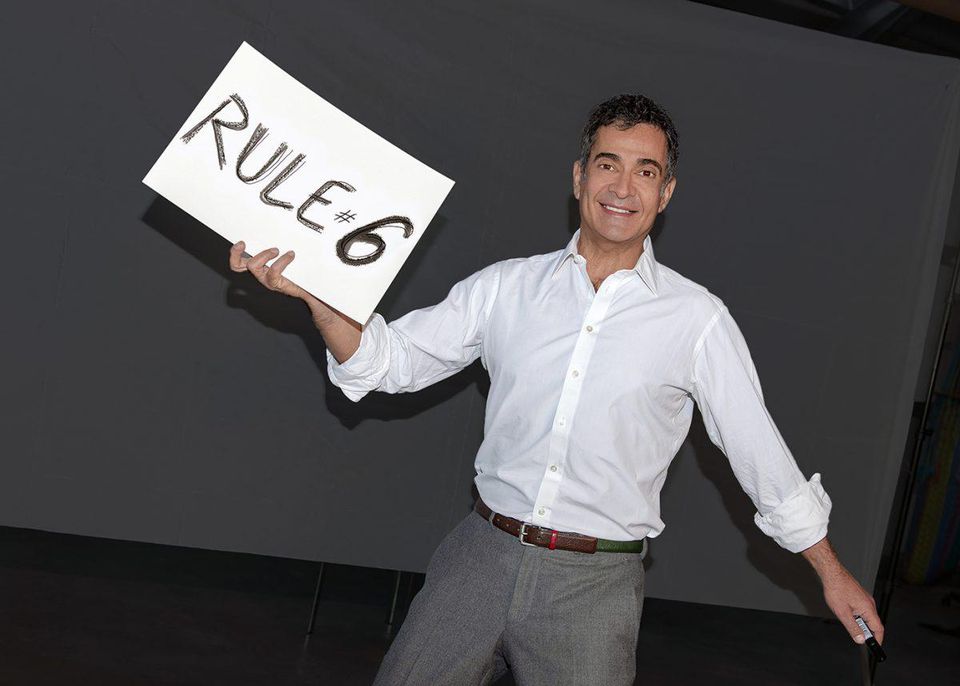A big part of my job as a coach is supporting clients to play the game of life with a sense of purpose, grace, and ease. Seeing life as a game isn’t always easy. However, in an age when robots will soon be able to do almost every job better than humans, being playful remains a uniquely human quality. Seeing life as a game will also make your life (and the lives of those around you) a whole lot lighter and more fun.
When you find your sense of playful grace and ease being challenged -perhaps you’re stressed by an exchange or exhausted by trying to perfect a task- it could be that you’re making whatever it is all about you. There may be some part of you that believes that delivering a positive outcome will mean you are not a loser. In other words, you are attached.

1. It is possible to be committed, but not attached
When a client comes to me with an attached mindset of ‘I am this project/relationship. If it succeeds then I succeed, if it fails, I have failed,’ I try to help them see how they need not make the outcome all about them.
If you can say: ‘This project is my responsibility and I commit fully to a positive outcome, but whether it succeeds or fails will not impact who I am or how I see myself,’ this is being committed without being attached.
Being committed without being attached includes the possibility of experiencing lightness and fun
One of my favorite books is The Art Of Possibility written by two extraordinary authors: the Psychologist, Rosamund Stone Zander and her husband Benjamin, who is one of world’s preeminent orchestral conductors. It’s all about how to live a fuller, more creative, generous life. Rosamund and Benjamin don’t preach. The whole book is made up entirely of wonderfully told, funny, warm and engaging stories: little parables which have made The Art Of Possibility so popular with generative people everywhere. Like Rosamund and Benjamin Zander, I regard ALL people as creative. It’s another thing that separates us from Robots.
2. Always Remember Rule Number Six
The most memorable story in the Zander book is called Rule Number Six
Two prime ministers are sitting in a room discussing affairs of state.
Suddenly a man bursts in, apoplectic with fury, shouting and stamping and banging his fist on the desk.
The resident prime minister admonishes him: “Peter,” he says, “kindly remember Rule Number 6,” whereupon Peter is instantly restored to complete calm, apologizes, and withdraws.
The politicians return to their conversation, only to be interrupted yet again twenty minutes later by an hysterical woman gesticulating wildly, her hair flying. Again the intruder is greeted with the words: “Marie, please remember Rule Number 6.”
Complete calm descends once more, and she too withdraws with a bow and an apology.
When the scene is repeated for a third time, the visiting prime minister addresses his colleague: “My dear friend, I’ve seen many things in my life, but never anything as remarkable as this. Would you be willing to share with me the secret of Rule Number 6?”
“Very simple,” replies the resident prime minister, “Rule Number 6 is ‘Don’t take yourself so damn seriously.'”
“Ah” says his visitor, “that is a fine rule.” After a moment of pondering, he inquires, “And what, may I ask, are the other rules?”
“There aren’t any.”From “The Art of Possibility: Transforming Professional and Personal Life”by Rosamund and Benjamin Zander, published by Harvard University Press
Now, every time I notice my voice rising or see that I am speeding up, gesticulating, or short of breath, I remind myself of Rule Number Six and I breathe. The self-important stress starts to dissipate. I begin to smile.

When a colleague, friend or partner is in the midst of a self-important diatribe, it can often be hard to say “Stop taking yourself so seriously.” If, however, the person is acquainted with the story of the two Prime Ministers, you can gently say “Rule Number Six” or, if you prefer, try holding up six fingers, or a hand-written sign with the words “Rule Number Six.” They’ll get it straight away. Nine times out of ten, I promise they’ll start to smile and relax.
Even if they don’t know about Rule Number Six, now that you do it will make other people’s self-importance (and your own) seem laughable.
3. Have A Chat With Your Future Self
If you want another way to access what is important and true for you (as distinct from the day to day nonsense which we all invest so much energy in) try to imagine yourself in 20 years. What would your future self have to say about your current predicament?
Every time I do this exercise with a new client, we both get something different. However, one message (from my future self to me today) never changes:
Life is short. It ends up how it ends up. Don’t sweat the small stuff and please, don’t take yourself so damn seriously.
Remy Blumenfeld is a creative life coach living in London. He empowers leaders to play the game of life with purpose, grace and ease. Before training as coach, he launched a TV Production company which created dozens of ground breaking, TV shows.



